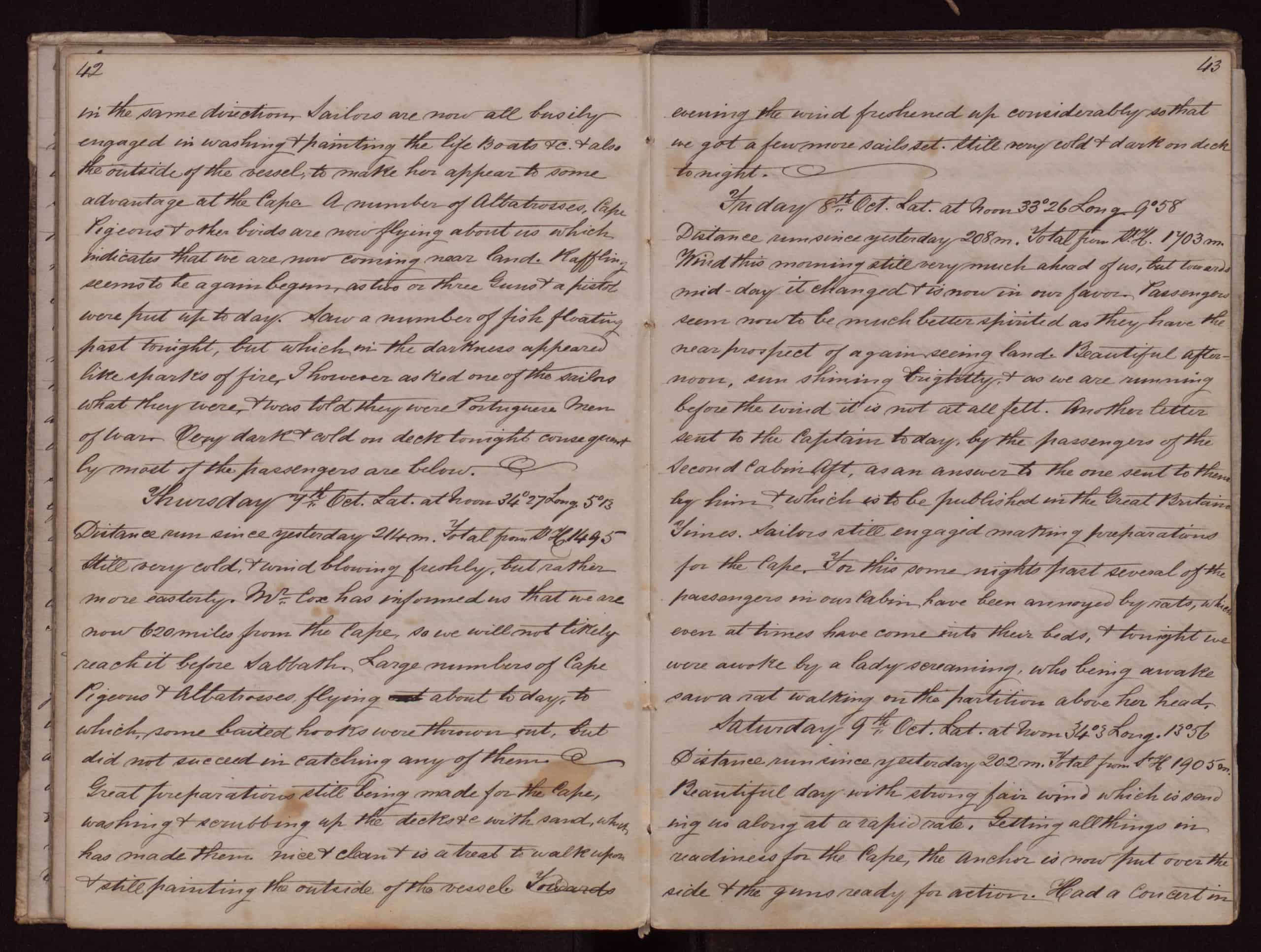- It didn’t matter if you travelled in steerage or first class, rats were a problem faced by everybody on board the SS Great Britain.
- Passenger Allan Gilmour wrote, at the end of his diary entry for Friday 8 October 1852, about the problem of rats on board the ship: “For this some nights past several of the passengers in our cabin have been annoyed by rats which even at times have come into our beds, & tonight we were awoke by a lady screaming, who being awake saw a rat walking on the partition above her head.”
- He also wrote that the rats were “pretty numerous & are to be heard during the night running about the Mess room & making a great noise.”
- Allan wrote the diary whilst travelling to Australia on the SS Great Britain. It gives the reader an insight into what life was like for passengers on board the ship.
The Story
Rattus rattus, or the black rat was a common sight on board the SS Great Britain. These creatures were able to smuggle their way on board and then move around freely eating food, socks, books and almost anything they could get their teeth into. One passenger even woke in the night to discover a rat nibbling her toe nails! Rats are excellent climbers, able to swim underwater and survive falling from heights, making them difficult to get rid of once they are onboard.
Rats are often mentioned in passenger diaries, from 1st class to steerage, showing that they were a ship-wide problem. Not even the captain was immune! Mary Paul Mulquin wrote in her diary that “The Captain tells a droll story of a rat running up his beard (a very bushy article indeed)”. Rats would be heard moving around the ship and were sometimes spotted up in the rigging. The crew would then try to catch the rats to prevent them from eating the sails or ropes. People went to great lengths to protect themselves and their property from rats, a passenger wrote in their diary “The moment the lights were out, the inhabitants… commenced a capital imitation of a feline [cat] concert”. Sadly, they didn’t write if making the cat noises worked in scaring off the rats!



